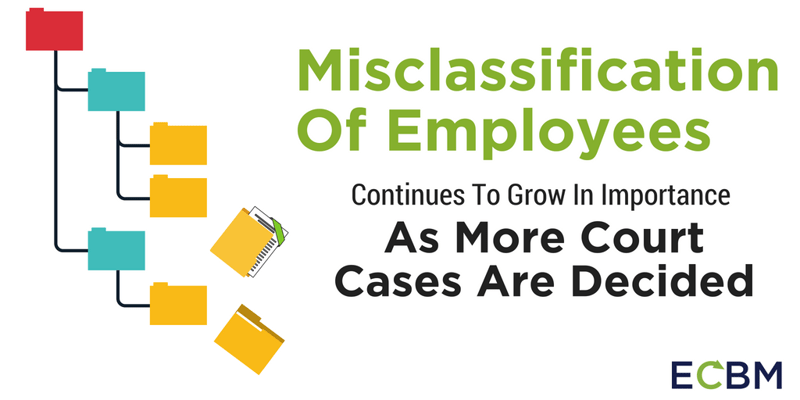
Employment law has seen many major disruptions in the past few years. Statutes, regulations, and court cases have continually re-defined who qualifies for overtime, the standards for determining collective bargaining units within a workforce, and how to define an employer. Defining an employer is further complicated by the fractured nature in which employment law is handled in different contexts and at different levels.
Different Definitions Of Employer
The definition of an employee or employer can differ under the Civil Rights Act (for determining discrimination disputes), the Fair Labor Standards Act (for determining wage and hour suits), the Internal Revenue Service (for tax issues), and the National Labor Relations Board (for unionization disputes). Definitions can also vary between the federal government and state governments.
Businesses Should Work On Different Policies For Different States
All these differences can put employers in a bind. Companies may need to enact different policies concerning employment practices for some of the states in which they operate. Businesses need to keep an eye on the fact that simply because a person providing them with labor may qualify as an independent contractor for tax issues does not mean that will protect them from a potential civil rights violation.
Independent Contractor Or Employee?
The independent contractor versus employee distinction has led to significant disputes at both the state and federal level in recent years. Approximately twelve to thirteen million people work as independent contractors according to some estimates, and the number has only increased in recent years as part of the “gig” economy. Misclassifying workers as independent contractors will cost the government money in lost payroll taxes and hurts workers by exempting them from many employee protections such as a new case out of California indicates that the issue will only continue to generate headlines and cause headaches for both employers and employees.
California Overturned a 30 Year Precedent
On May 1, the California Supreme Court overturned precedent on the classification of workers that had stood almost thirty years. The case involved a package and document handling company, Dynamex Operations West, that classified their delivery drivers as independent contractors. The California Supreme Court did not rule on the dispute itself but remanded the case to the Superior Court to follow a new test to be used by lower in courts in determining such lawsuits going forward.
The new test presumes that workers are employees and forces businesses to prove that a worker qualifies as an independent contractor to win a misclassification lawsuit.
What Does Qualify A Worker As An Independent Contractor?
A company must establish three facts to prove that a worker qualifies as an independent contractor.
- That the worker is free from the control and direction of the employer in connection with the performance of the work.
- That the work performed is outside the usual course of business for the employer.
- That the worker is customarily engaged in an independently established trade, occupation, or business.
A failure to prove any one of these three facts will result in the worker to be defined as an employee.
Employers Should Be Paying Attention As The Rules Change State By State.
By adopting this new test, the California Supreme Court has moved California closer to states like Massachusetts and New Jersey that have made it significantly harder for companies to classify workers as independent contractors. Companies that use independent contractors need to pay attention to both the rules of the states in which they operate as well as to this growing and expanding trend. Otherwise, they may wind up facing expensive lawsuits and visits from angry tax collectors going forward.
